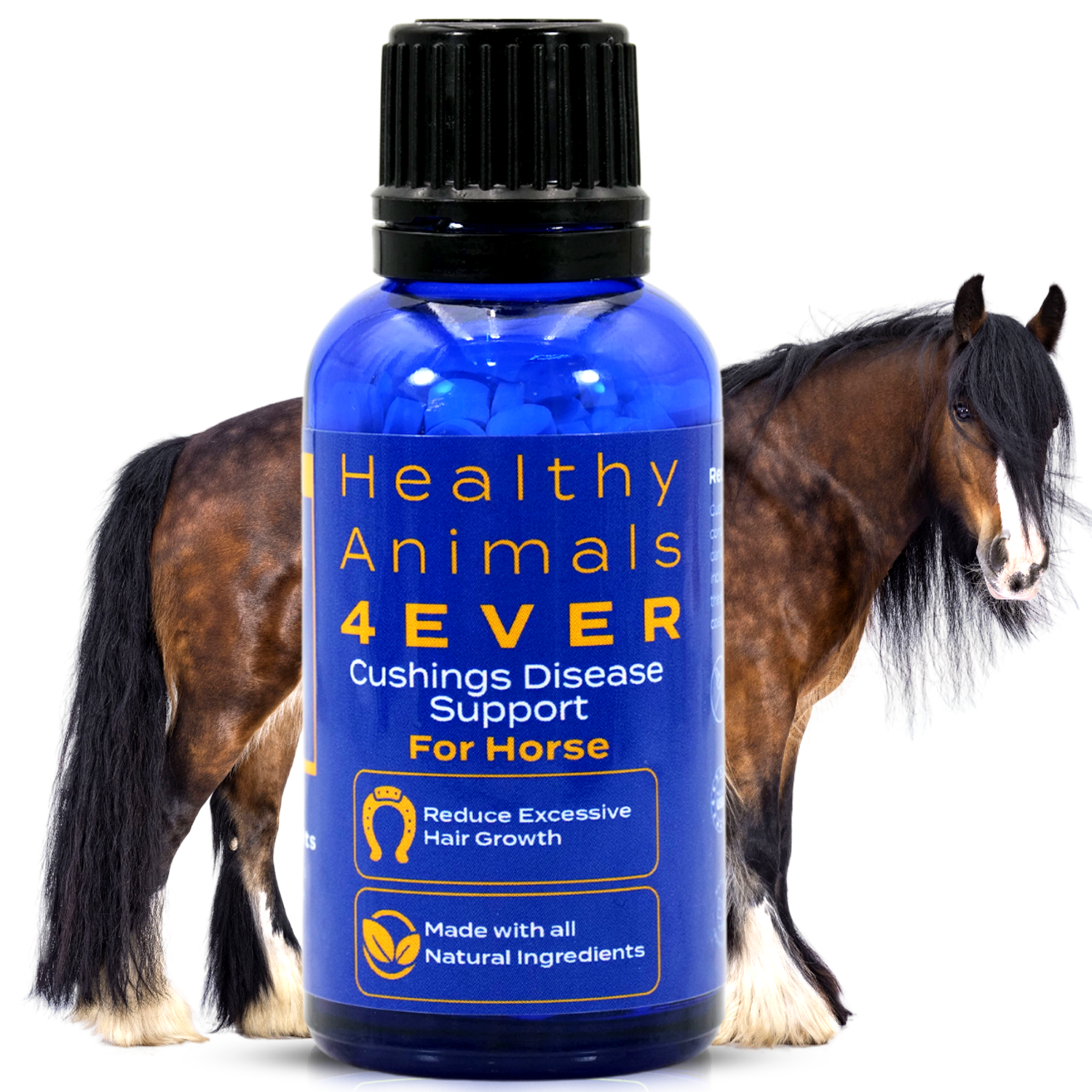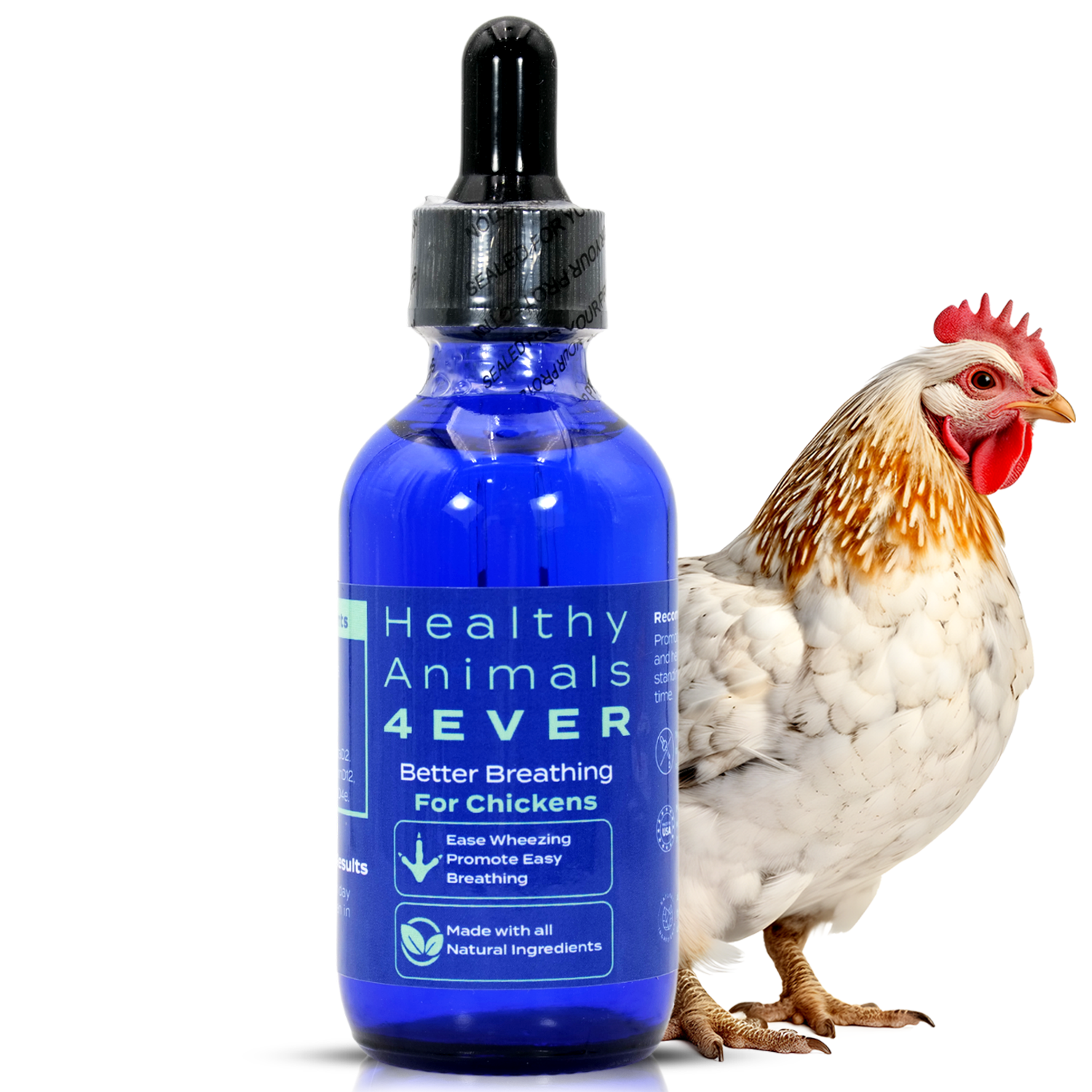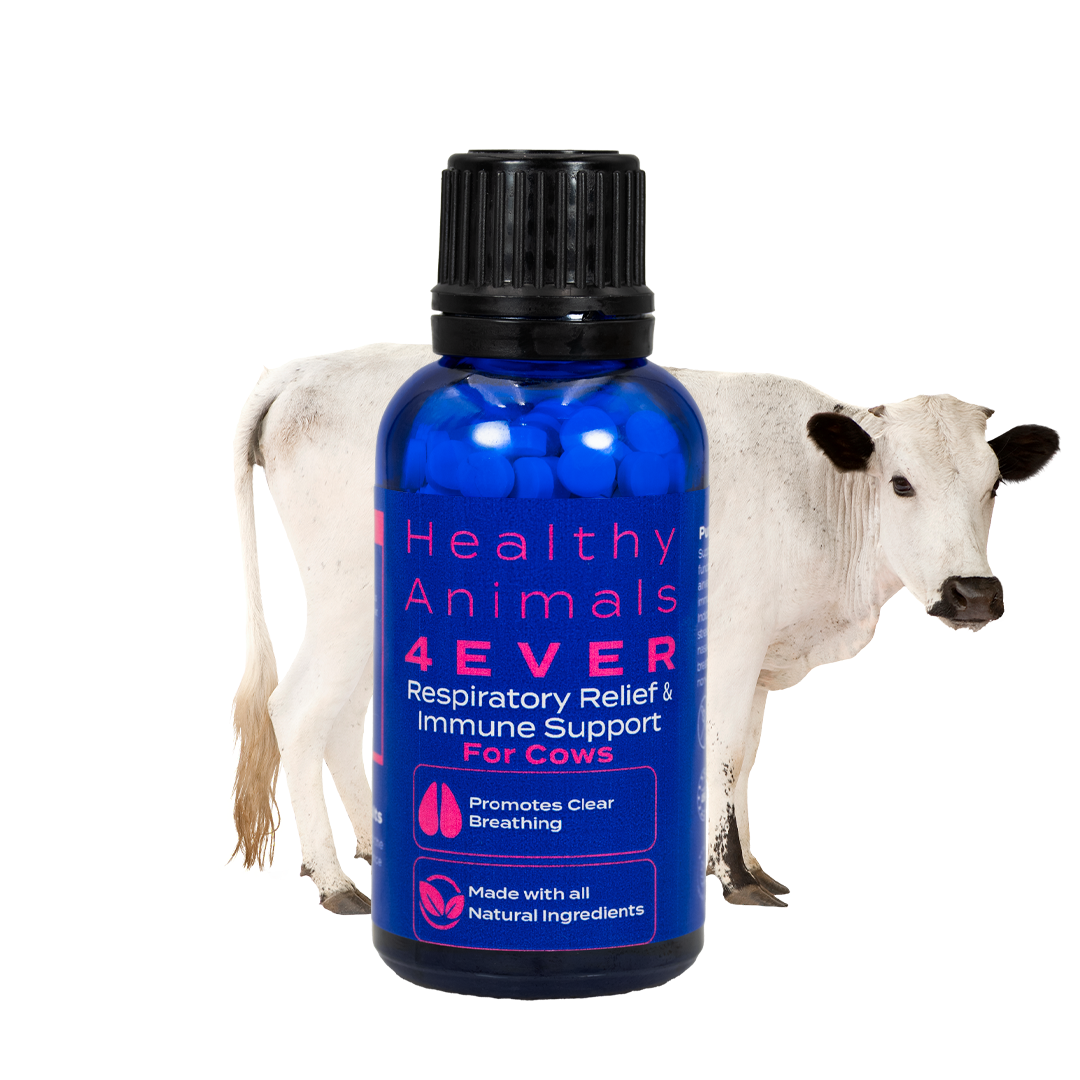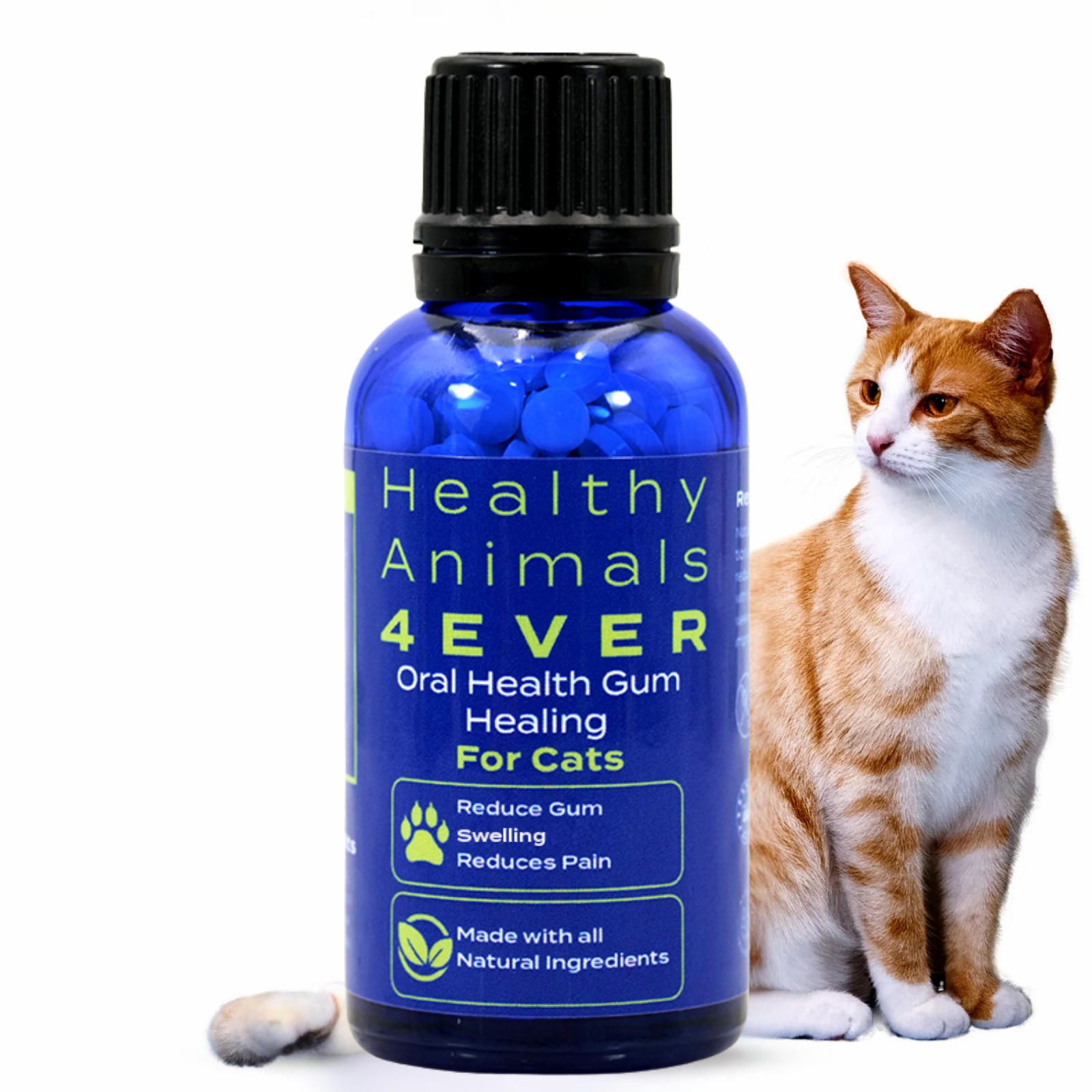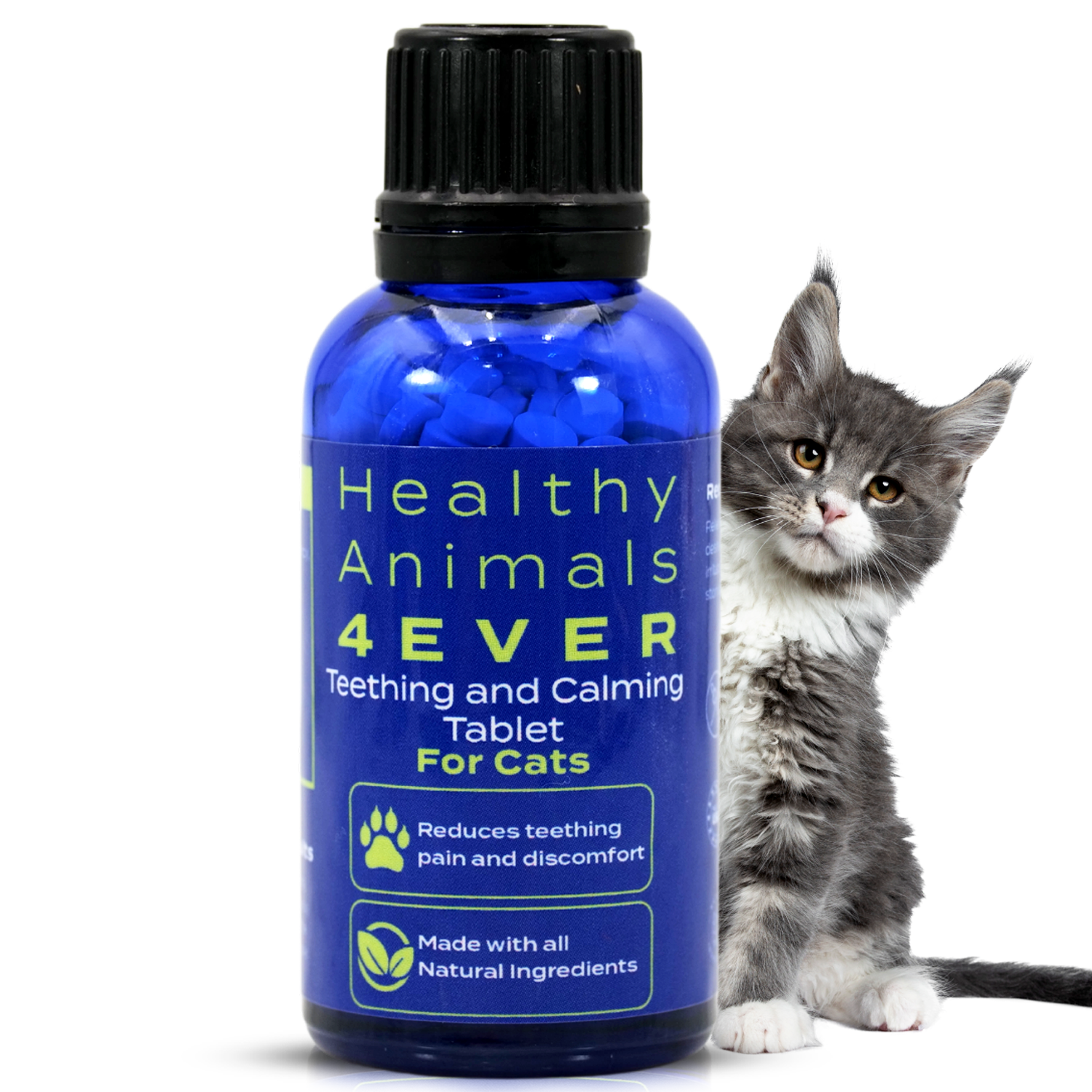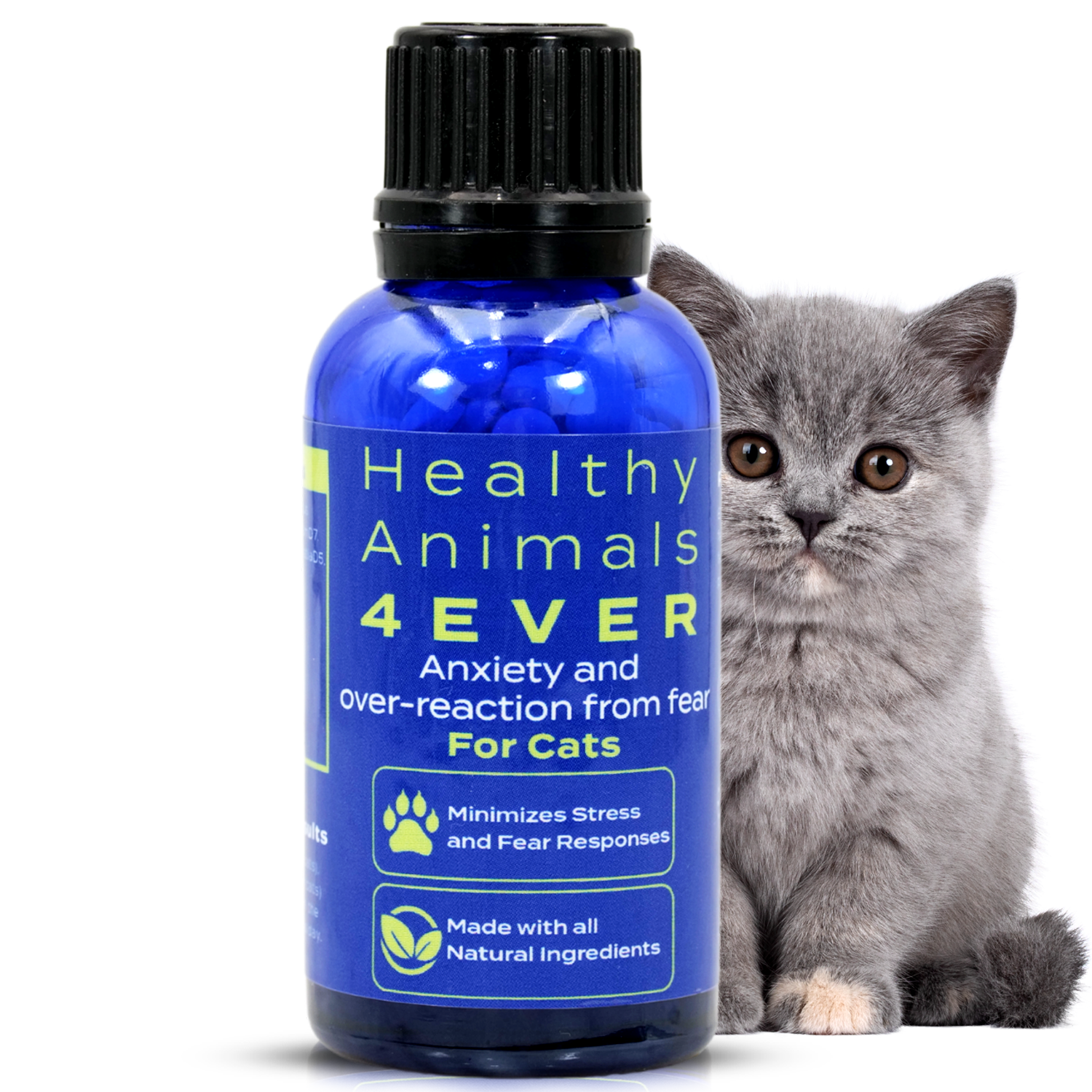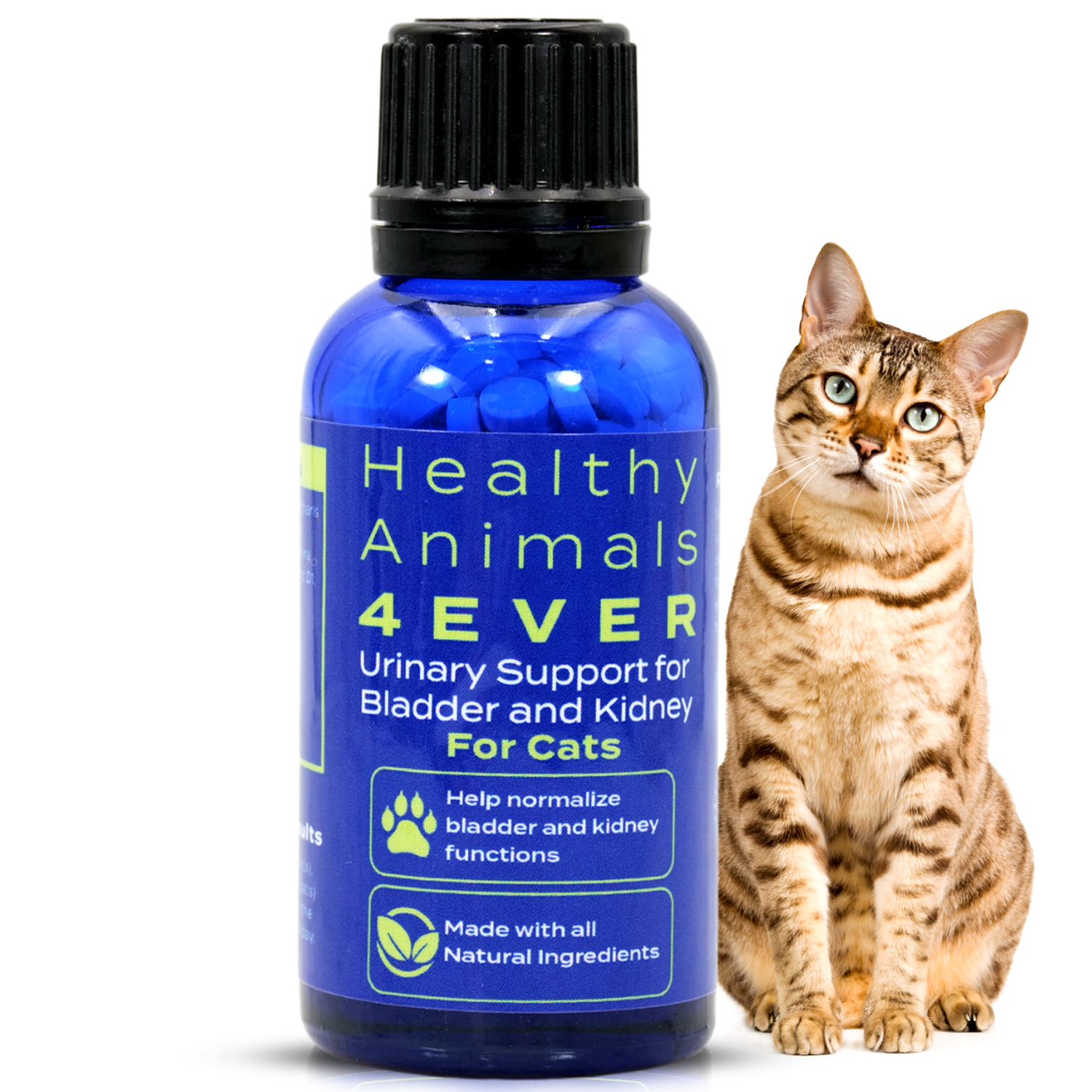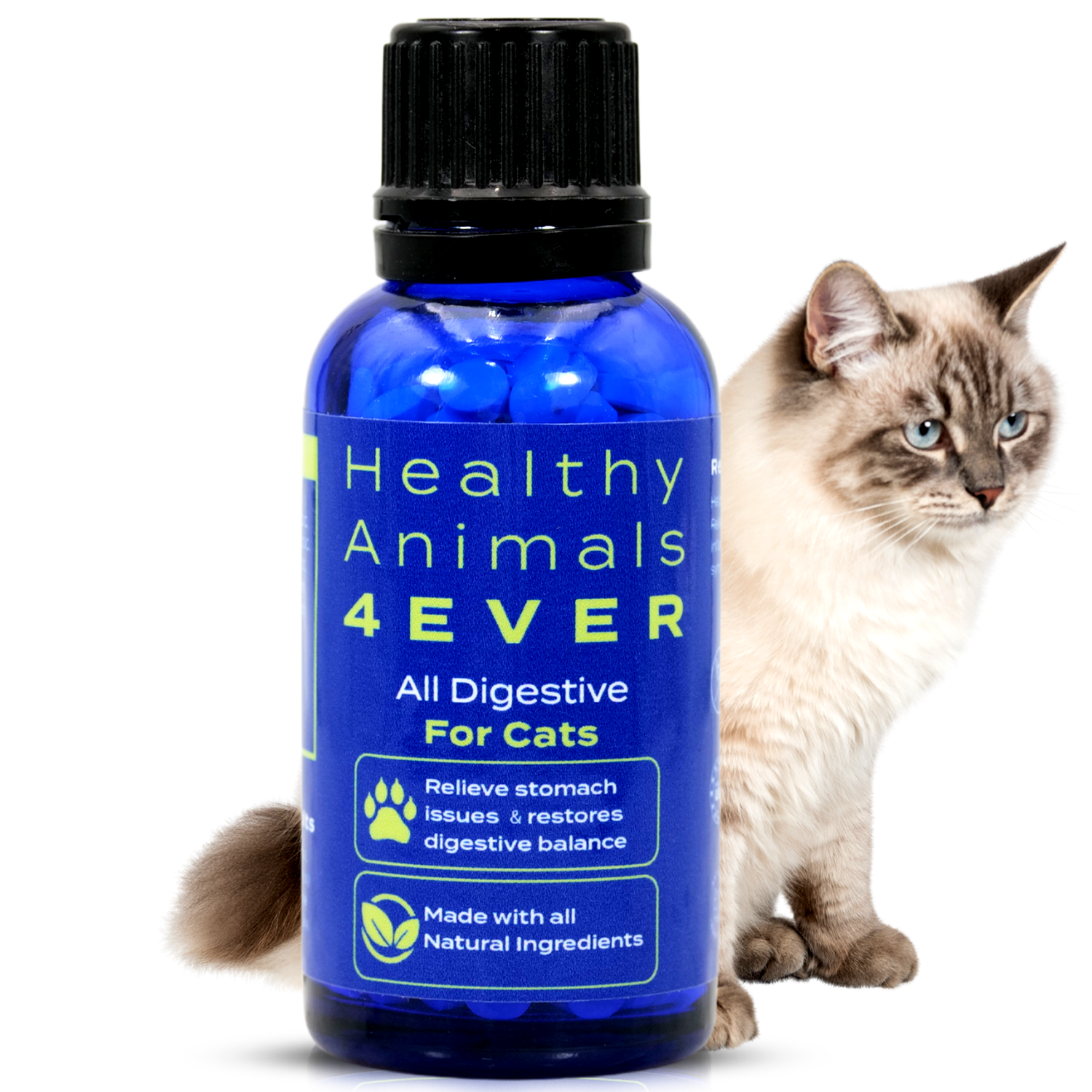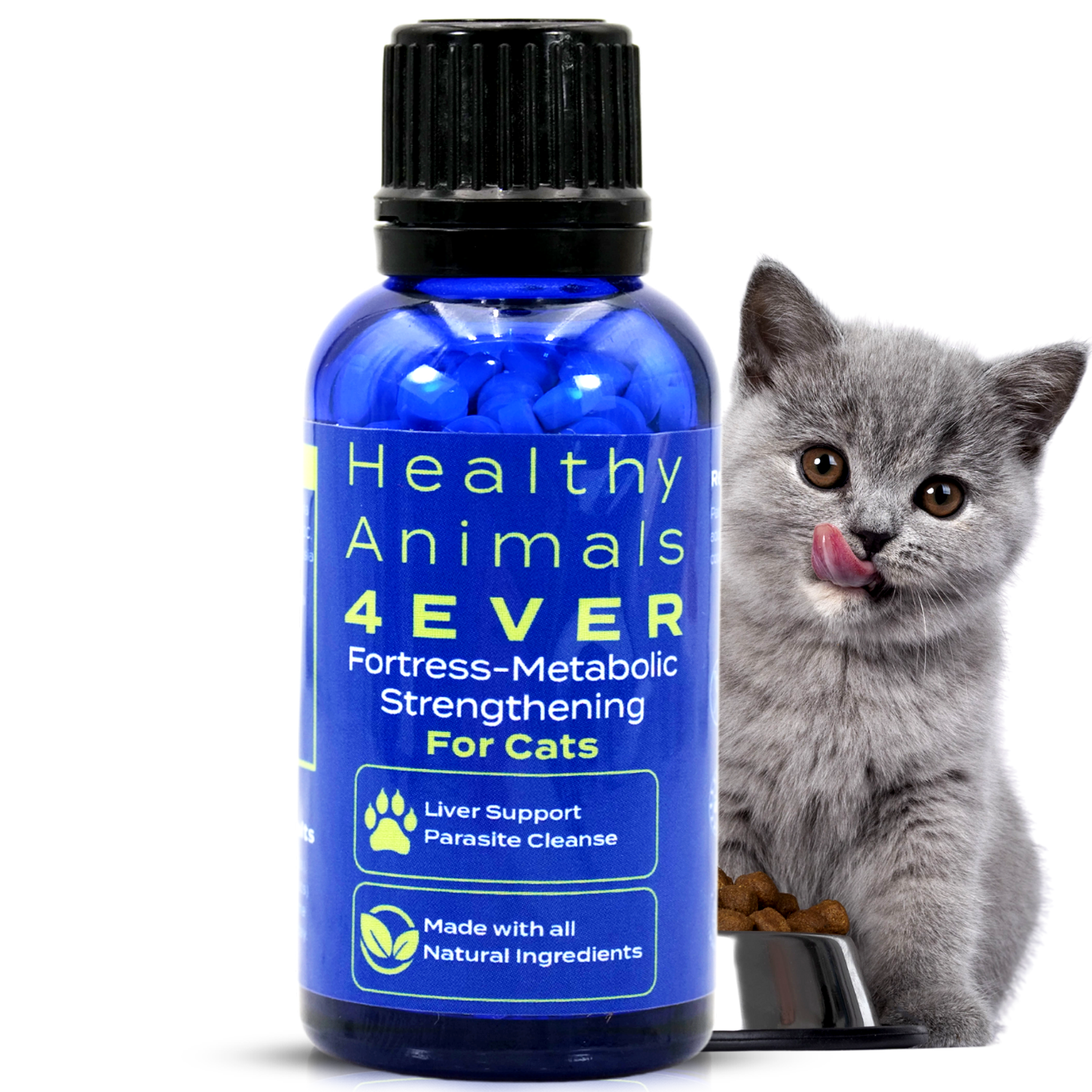The Ultimate Guide on Dental Care for Cats
Cats hold a special place in American households, with nearly 70 million sharing our homes. They've earned the spot as the second most popular companion animal, right after dogs. Just like us, cats require thoughtful dental care to maintain good health. Given their potentially lengthy lifespan, which can exceed twenty years, it's crucial to initiate dental check-ups when they're still kittens.
Regular oral examinations at the vet, ideally twice a year, play a key role in ensuring your cat's dental well-being. However, if frequent vet visits are challenging, maintaining your cat's dental health at home becomes essential. In this blog, we'll explore tips to help you effectively care for your cat's teeth.
Oral Health Gum Healing is a natural remedy for gum disease and inflammation in cats. Promotes healing and optimal oral health. Aids in reducing pain. All-natural formula. Easy to use.
Tips to Protect Your Cat from Dental Pain & Diseases

- Teething Problems & Solutions
Kittens experience teething, just like puppies, which can be uncomfortable. Consider using homeopathic medicine to alleviate and prevent the pain during this phase. This safe and side effects-free solution not only eases tooth discomfort but also provides essential vitamins and minerals for your kitten's development.
Teething Relief and Calming Tablet promotes calmness in your cat. It helps with anxiety and irritation from teething, storms, and other triggers. Helps reduce teething pain, discomfort, and more. All-natural formula. Easy to use.
- Give Your Cat a Nutritious Diet
Cats need a high-quality diet that contains all the essential nutrients for good health and dental hygiene. Inadequate nutrition will result in poor growth, leading to bad oral health. So, consult your vet about the right food for your cat.
Because of their food, some cats are more likely to be affected by dental disease. Canned cat food may help prevent tartar buildup compared to dry cat food, which is hard and rough on your pet's teeth. So, it’s a good idea to include at least a small amount of canned food in your cat’s diet. The increased moisture makes it easier to clean the molars, preventing tartar buildup. Also, consider giving your cat treats like dental chews since these will help clean your pet's teeth.
- Before you Brush - Get Your Cat Used to The Water
Cats are known for their cleanliness, but many dislike water on their faces or heads. To prepare your cat for dental care, gradually introduce them to water using a wet washcloth. Begin by gently cleaning their face with this method before progressing to using your fingers and a toothbrush. This step-by-step approach helps your cat become more comfortable with the process, making dental care a smoother experience for both of you.
- Brushing Your Cat's Teeth
Aim to brush your cat's teeth daily to prevent tartar buildup. If your schedule doesn't allow for daily brushing, try to do it at least twice a week. It's crucial to use special cat toothpaste with a different flavor than human toothpaste, as cats can be picky about taste, and human toothpaste is harmful to them.
Be patient; it may take time for your cat to accept having its teeth brushed. Forcing your cat or aggressively brushing its teeth is not a good idea. It will only create lasting anxiety and fear of this activity. It may also cause your pet to become agitated when they see the brush or toothpaste tube. Start the brushing routine when your kitten is young and take it slow to build a positive association with the activity.
Anxiety and Over-Reaction from Fear is a natural remedy for calmness and reduced fear in cats. It helps minimize stress and fear responses. Useful for generalized, separation, social, and environmental anxiety. All-natural formula. Non-drowsy relief. Easy to use.
- Toothpaste and Toothbrushes for Cats
Choose a soft-bristle pet toothbrush specifically designed for cats, available at pet stores or online. Unlike humans, cats don't have flat teeth that allow flossing or brushing, making a proper cat toothbrush essential for preventing dental issues.
Be sure to use only a tiny amount of the cat toothpaste and wipe away any excess because it can upset your cat's stomach.
Starting this routine when your cat is young often makes the process easier, and even older cats will eventually adapt to this activity with time. Try to keep the sessions as short and straightforward as possible.
- A Natural Solution for Gum Problems
Cats can be sensitive to products containing zinc, leading to stomach upset. If you detect any foul odor around your pet's mouth, pus discharge, inflammation, or bleeding gums, consider using homeopathic medicine products to naturally protect and heal your cat's gums.
Natural-based gum-healing medicines utilize natural ingredients that effectively reduce plaque buildup on your cat's teeth without causing harm. Watch for these signs and incorporate natural solutions that enhance your cat's dental health and well-being.
Signs of Dental Diseases in Cats

Recognizing signs of dental issues in your cat is crucial for early intervention. If you observe any of the following symptoms, it's essential to consult your vet promptly, as untreated dental problems can lead to tooth loss and even more severe issues like heart and kidney problems.
Urinary Support for Bladder and Kidney provides natural renal system support for cats. Promotes healthy bladder and kidney functions. Helps ease issues associated with a UTI (Urinary Tract Infection). All-natural formula. Safe and easy to use.
- Excessive Drooling: If your cat is drooling more than usual, especially if it is foamy or has a foul odor, it could indicate dental problems. Increased salivation may indicate discomfort, and promptly addressing it is essential for your cat's well-being.
- Destructive Behavior: Cats in pain may exhibit destructive behavior, such as biting at objects. If you notice unusual biting tendencies, it could be a response to dental discomfort.
- Changes in Eating Habits: Painful gums can make eating uncomfortable for cats, leading to changes in their eating habits. If your cat seems reluctant to eat, stops eating altogether, or becomes more aggressive, it may signal underlying dental problems.
- Changes in Weight: Dental problems can affect a cat's eating ability, potentially leading to weight loss. If you notice a significant change in your cat's weight without a clear explanation, it's advisable to consult your vet to rule out dental issues, among other potential health concerns.
- Excessive Drooling: If your cat is drooling more than usual, especially if it is foamy or has a foul odor, it could indicate dental problems. Increased salivation may indicate discomfort, and promptly addressing it is essential for your cat's well-being.
- Destructive Behavior: Cats in pain may exhibit destructive behavior, such as biting at objects. If you notice unusual biting tendencies, it could be a response to dental discomfort.
- Changes in Eating Habits: Painful gums can make eating uncomfortable for cats, leading to changes in their eating habits. If your cat seems reluctant to eat, stops eating altogether, or becomes more aggressive, it may signal underlying dental problems.
- Changes in Weight: Dental problems can affect a cat's eating ability, potentially leading to weight loss. If you notice a significant change in your cat's weight without a clear explanation, it's advisable to consult your vet to rule out dental issues, among other potential health concerns.
All Digestive provides natural digestive support for cats. Helps with stomach upset, diarrhea, and gastritis. It aids in restoring digestive balance and your pet's comfort. All-natural formula. Easy to use.
- Inappropriate Urination: Surprisingly, dental problems can also manifest in changes in urination behavior. Your cat starting to urinate outside its litter box or frequently urinating may be a sign of oral health issues.
- Bad Breath (Halitosis): Persistent bad breath is often a clear indicator of cat dental problems. Suppose your cat's breath has an unpleasant odor that doesn't improve with regular cleaning. In that case, it may indicate underlying dental issues such as gum disease or infection.
- Pawing at the Mouth: Cats experiencing dental pain may paw at their mouths or faces. Your cat frequently touching its mouth area or showing discomfort when doing so is a potential sign of dental discomfort. So, keep an eye out for these cues.
- Red or Inflamed Gums: Healthy gums should be pink; red or inflamed gums may signal gingivitis or other dental problems. Regularly check your cat's gums for any changes in color or swelling as part of their overall oral health monitoring.
- Visible Tartar or Discoloration on Teeth: Regularly inspect your cat's teeth for signs of tartar buildup or discoloration. Yellow or brown deposits on the teeth may indicate dental issues that require attention.
Proper Dental Hygiene for Your Cat

Ensuring your cat's dental health involves simple yet essential steps. Begin by brushing your cat's teeth, focusing on each tooth's surface and the spaces in between. For added effectiveness, use a small piece of gauze wrapped around your finger to gently clean the teeth.
Next, lift your cat's lips to inspect her gums thoroughly. Healthy gums should have a pink color. Observing pale or whitish gums could indicate a potential issue, and you must consult your vet promptly.
For professional teeth cleaning, it's best to rely on a veterinarian's expertise. Regular dental check-ups with your veterinarian are essential to maintaining your cat's oral health. These check-ups not only address existing issues but also help prevent the development of more severe dental problems. Remember, a healthy set of teeth contributes to your cat's overall well-being and longevity.
Natural Solutions for Cat Dental Care

Maintaining your cat's oral health goes beyond brushing, and there are simple and natural remedies you can incorporate into your cat's dental care routine. These solutions are not only practical but also gentle on your feline friend:
- Flavored Toys: Consider getting flavored toys for your cat. These can be enjoyable for your pet while also contributing to dental health. The act of chewing on toys helps in cleaning their teeth and gums.
- Homeopathic Remedies: Various homeopathic remedies are available to support your cat's dental health. These remedies often come in safe and natural formulations to assist in maintaining healthy teeth and gums.
- Dental Treats: Dental treats can be a practical alternative if brushing your cat's teeth is challenging. These treats are designed to promote dental hygiene, helping keep your cat's teeth clean while you do your daily activities.
- Chewable Toys with Grooves: Invest in toys with grooves that encourage chewing. Chewing on these toys can benefit your cat's dental health by preventing plaque buildup. Additionally, chewing stimulates saliva production, which removes toxins from the mouth.
- Bones for Chewing: Cats can benefit from chewing on bones, as it supports dental health and helps prevent plaque accumulation. Bones encourage saliva production, which plays a role in cleaning the mouth naturally. Providing your cat with a suitable chewing option, especially when you're away, contributes to their oral well-being.

- Milk in Moderation: If your cat enjoys milk, offering small amounts can contribute to cleaning her teeth and preventing plaque buildup. However, providing milk in moderation is essential, as excessive consumption may lead to digestive issues.
- Coconut Oil: Coconut oil possesses natural antibacterial properties that can help combat plaque and promote oral health. You can introduce small amounts of coconut oil into your cat's diet or apply it to their teeth using a soft toothbrush or cloth.
- Parsley: Fresh parsley acts as a natural breath freshener and may help reduce bad breath in cats. Chop a small amount of fresh parsley and sprinkle it on your cat's food, or mix it into their meals.
- Water Additives: There are specially formulated water additives available that can aid in maintaining your cat's oral hygiene. When mixed with your cat's drinking water, these additives can help reduce plaque and freshen their breath.
- Crunchy Vegetables: Some cats enjoy crunchy vegetables like carrots or cucumbers. These can act as natural toothbrushes, helping to clean your cat's teeth as they chew. Ensure the vegetables are cut into small, safe pieces for your cat to consume.
- Turmeric Paste: Turmeric has anti-inflammatory and antimicrobial properties. You can create a paste by mixing a small amount of turmeric with water and applying it to your cat's teeth. Be cautious with the quantity to avoid staining.
Remember to introduce these holistic remedies gradually and monitor your cat's response. These natural solutions complement regular dental care practices and improve your cat's oral health.
Should you Extract Your Cat's Tooth?

When to Extract Your Cat's Tooth:
Timely tooth extractions are crucial if your cat is experiencing pain, displaying signs of aggression, or facing appetite loss due to dental issues. If your cat has refrained from eating for more than a week due to tooth problems, immediate extraction is necessary to prevent the development of other health issues.
To initiate the extraction process, schedule an appointment with your vet to thoroughly examine your cat's mouth. The vet will use an anesthetic to ensure a pain-free experience while removing the problematic tooth. Numbing agents will be applied to the tooth's area, and specialized instruments will be used to carefully extract the tooth. The vet will then seal the extraction site for proper healing.
Regular check-ups are essential to catch potential dental issues early and avoid complications. Consistent veterinary care helps maintain your cat's oral health and overall well-being.
Fortress-Metabolic Strengthening is a strengthening formula for your cat’s metabolic system. Promotes the healthy functioning of the liver. Natural support for parasite cleanse & may help with die-off symptoms. All-natural formula. Safe and easy to use.
When Not to Extract Your Cat’s Tooth:
There are instances when tooth extraction might not be the best option. If your cat has underlying health conditions that could worsen with the extraction process, your vet will advise against it. Tooth extraction is a delicate decision, and it's crucial to heed your vet's guidance in such cases.
For issues like tartar buildup without infection, there are home remedies to consider before opting for extraction. Adding water or baking soda to your cat's food can help address tartar and promote cleaner teeth.
In cases where a tooth has broken but there's no infection, allowing it to heal naturally is a viable option. Extraction may not be necessary in these situations, and your vet can advise on the best course of action for your cat's specific condition.

Conclusion
In addressing your cat's dental health, the appropriate course of action depends on the severity of the issues. Tooth extractions may be necessary when damage is extensive and immediate intervention is required. However, effective solutions can often be managed at home for concerns like plaque buildup or hair caught between teeth.
Recognizing the importance of dental hygiene for pets is paramount. Timely care for your cat's dental problems is crucial, and prevention is even better. Safeguard your cat's teeth with suitable remedies, treats, and a balanced diet to prevent tooth and gum diseases.
Consistent dental care involves regular teeth brushing, close observation of your cat's dental health, and scheduled vet check-ups. By incorporating natural remedies and dedicating time and effort, you can ensure your cat's teeth remain healthy and well-protected. Your commitment to their oral well-being contributes to their health, happiness, and longevity.
You might also like the following:





